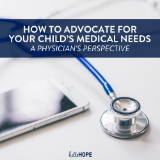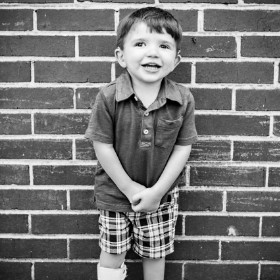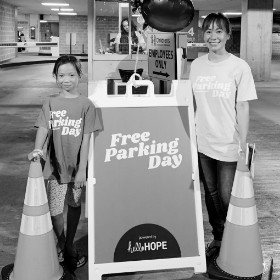When I Can’t Fix It: Learning Through Hard Questions
As a dad, I like to fix things. And as a dad of two little girls, I find myself fixing things for them on a regular basis. From watch batteries to walking sticks to bicycles and everything in between. This is one of the parts of being a dad that I love. I enjoy taking things apart, figuring out how they work, putting them back together, and in the end, seeing a little smile and hearing a sweet “Thanks, Dad!” from one of my girls.
I’m not sure what it is about the desire to fix things, but in most situations, and sometimes to my detriment, my first reaction is to try to do something about or fix whatever is wrong. From a diagnosis with EoE to a scraped knee or “bonk,” my instincts don’t change. I am immediately looking for a way to make it better. The result usually ranges from diet changes to band-aids to tips and tricks (or anything else that comes to mind), but my desire is the same: I want to find something to help us cope or deal with the situation a little easier.
I’m sure that part of this instinct is rooted in my love for our family and not wanting to see anyone suffer. I also think there is a part of this tendency that’s just the way God made me. I remember, especially before we had a diagnosis for Audra’s health challenges, being so frustrated by my inability to do anything to fix the situation. There were times I wanted to find a new doctor or do more research in an effort to do something, but I knew that my ability to fix the situation was limited. Much more than I was willing to admit at the time.
I’m (slowly) learning, though, that sometimes I need to take a step back and just listen or watch. Quietly. It’s not that taking action in difficult situations is wrong or even unhelpful. I simply feel like I can get in the way of what is most helpful or meaningful. When I can step back enough to take a breath, two things tend to happen: My emotions become more raw and obvious, and I see the situation more clearly.
During those moments when anger and frustration or disappointment in unmet expectations arose, I've asked God some tough questions:
God, You’re my Dad, but what do You do when You see us hurting with skinned knees, broken hearts or chronic disease?
God, You’re all powerful, but where are You when pain and sickness show their ugly face?
God, You’re the Healer, but why don’t all of my prayers for healing get answered when and how I ask?
I think it’s good to ask God honest and specific questions. I’m learning that these questions are through my lens of wanting to fix things. I want to know what is being done about my situation. I certainly don’t have all of the answers, but I think that asking opens our hearts to God’s truth.
Gradually, God is opening my eyes to see His presence with our family in these times. He is helping me re-frame my questions and thoughts about my circumstances. This doesn’t mean that pain or suffering are easier to watch or bear, but I’m asking Him to open my heart to ask these questions differently and remind me of what He has promised:
You are my Dad. What do you feel when You see us hurting with skinned knees, broken hearts and chronic disease?
(Truth: Matthew 9:36 - I want to connect with God’s heart toward pain and suffering.)
You are always present. How can I feel and remember Your presence when pain and sickness show their ugly face?
(Truth: Psalm 46:1 - God isn’t any farther from me when pain comes.)
You are the Healer. Help me to pray boldly, believe fully, and accept your answer gracefully and joyfully.
(Truth: Psalm 103:2-5 - God wants me to believe and trust completely.)
I feel this pull to want to fix things during big challenges (scary procedures, big medical tests, etc.) and small challenges (scrapes, bumps, shots, etc.). When I know I can’t do anything to change the circumstance, I will hold my little girls and look into their eyes to let them know that I’m with them and that I love them. No matter what. Maybe that’s what God, our Dad, wants to do for us when we’re hurting, too.













